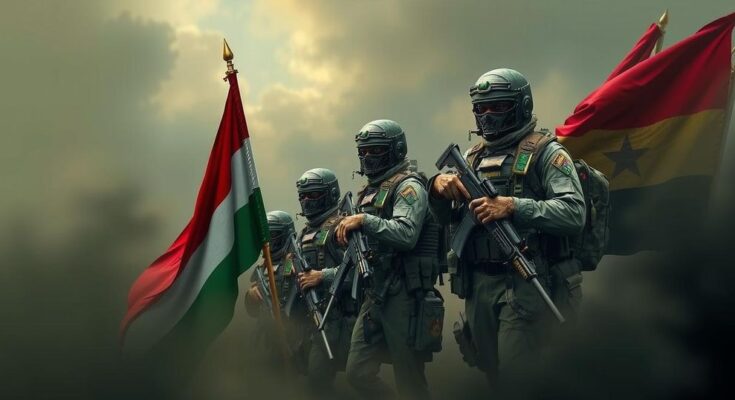Chad has accused Sudan of financing and arming Zaghawa rebel groups to destabilize Chad. The allegations follow a history of conflict between the two nations and recent claims from Sudan about Chadian interference in its civil war. The backdrop includes severe humanitarian crises resulting from ongoing violence in the region.
On Friday, the Chadian government formally accused Sudan of providing arms and funds to rebel groups within Chad’s borders, alleging that this assistance is intended to undermine the stability of the nation. Chad’s foreign affairs minister, Abderaman Koulamallah, asserted that Sudan is supporting a rebellion led by the Zaghawa ethnic group, which is reported to operate from the El Facher region in southwestern Sudan. This group is reportedly under the leadership of Ousman Dillo, sibling to the late Chadian opposition leader Yaya Dillo Djerou, who was killed by Chadian military forces earlier this year. Historically, the Zaghawa rebels based in Sudan have posed significant challenges to Chad’s leadership. Notably, during a swift offensive in February 2008, a Zaghawa group managed to threaten the then-president Idriss Deby Itno, forcing him to seek refuge in his palace before regaining control with French assistance. The tumultuous relationship between Chad and Sudan has roots going back to these conflicts, which have unfolded over the years against the backdrop of regional political complexity. Most recently, Sudan has accused Chad of interfering in its domestic civil war by allegedly facilitating the transfer of weapons from the United Arab Emirates to the Rapid Support Forces (RSF), a paramilitary group engaged in conflict against the Sudanese army. The ongoing war in Sudan that began in April 2023 has resulted in the deaths of tens of thousands and has displaced over 11 million people, with millions seeking refuge outside the country.
The allegations exchanged between Chad and Sudan are entrenched in a historical context marked by ethnic and political strife. The Zaghawa ethnic group has been a focal point in this contentious exchange, especially considering previous armed conflicts, such as the one in 2008, that threatened Chad’s stability. Furthermore, the broader implications of the conflict in Sudan—a civil war between the regular army and RSF—add layers of complexity to the regional dynamics. With many lives lost and a significant refugee crisis, the tensions between these nations highlight the fragile security environment in the region.
In conclusion, the accusations made by Chad against Sudan regarding the support of rebel forces underscore the ongoing political fragility and inter-state tensions in the region. The historical context reveals a cycle of conflict driven by ethnic rivalries and political turmoil, complicated further by the Sudanese civil war. As both nations grapple with internal and external pressures, the potential for further destabilization remains a pressing concern.
Original Source: www.arabnews.com




